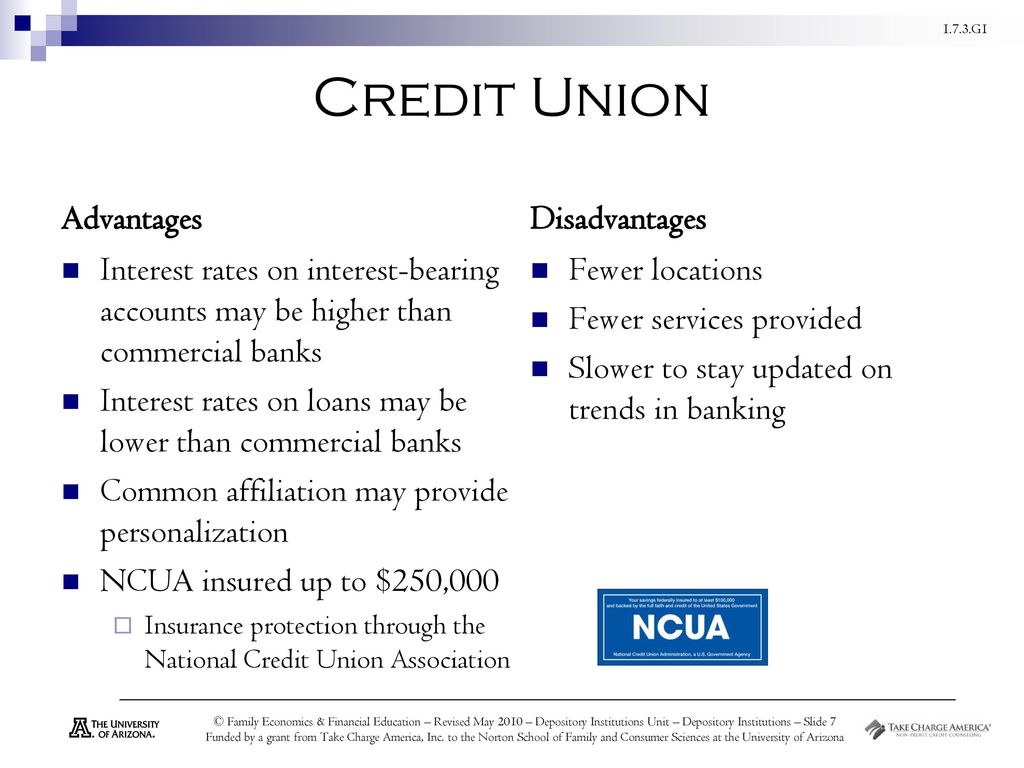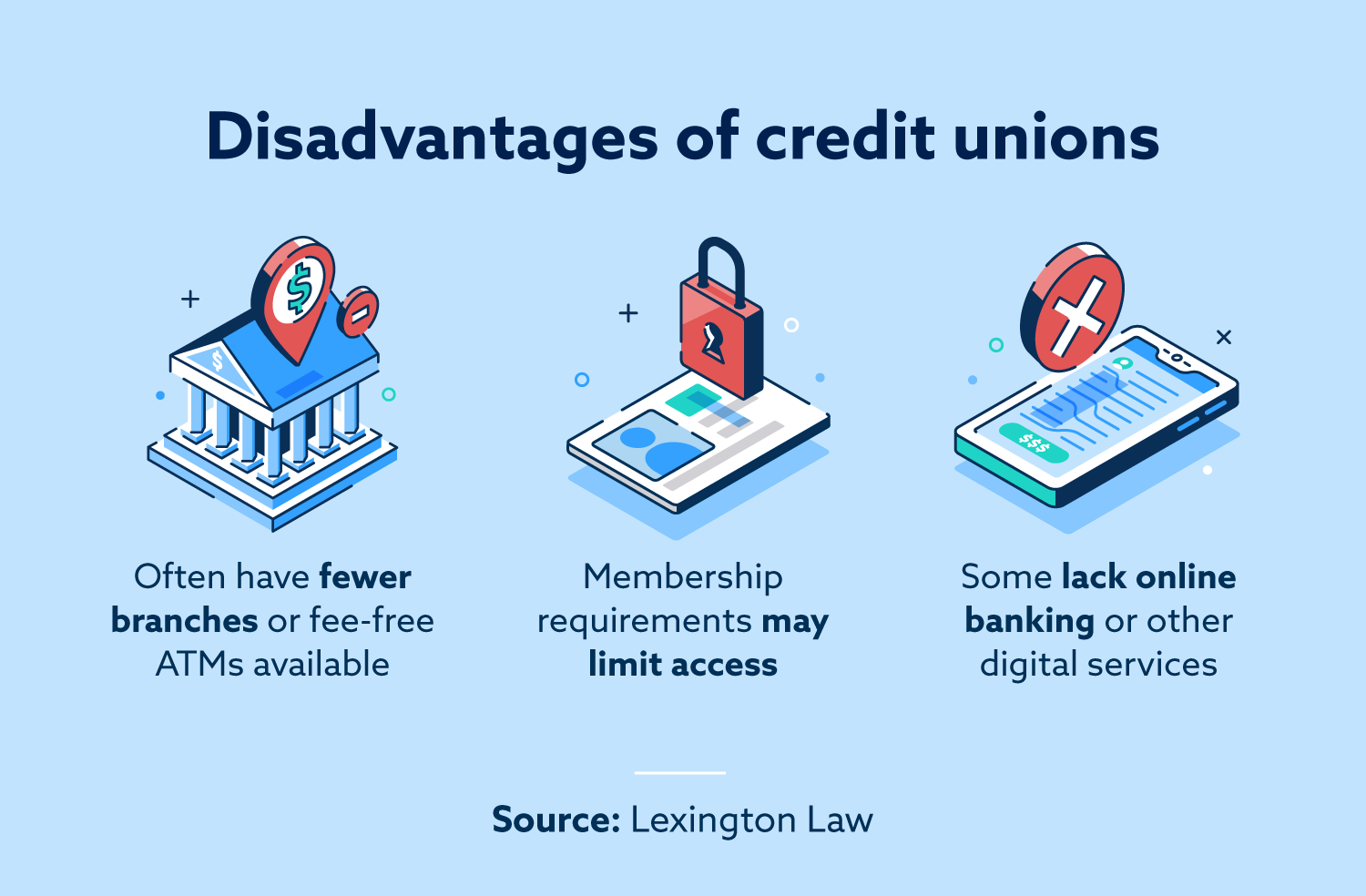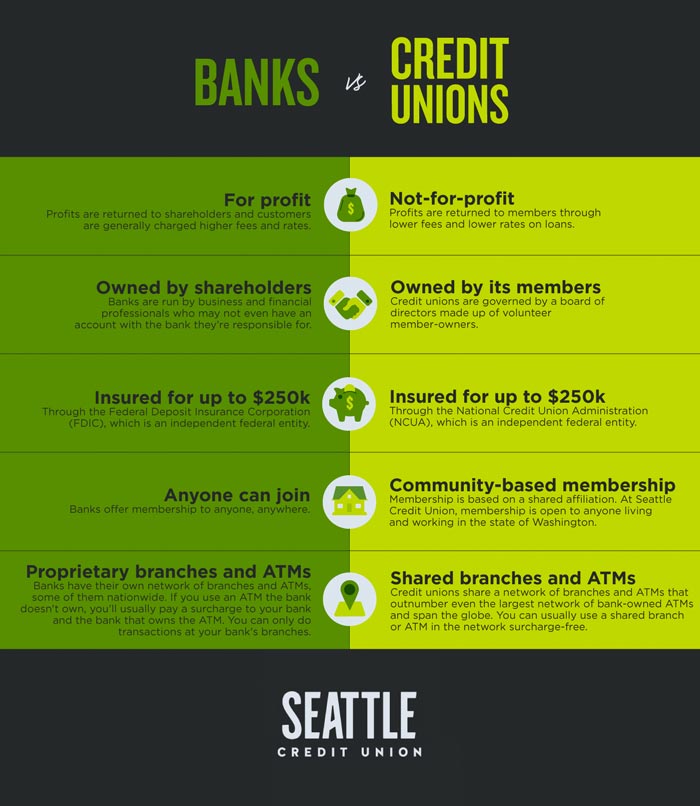Hybrid Line of Credit: Flexible Financing Options from Your Wyoming Credit Union
Hybrid Line of Credit: Flexible Financing Options from Your Wyoming Credit Union
Blog Article
The Ultimate Guide to Comprehending Lending Institution

Credit score unions stand as one-of-a-kind economic entities, rooted in principles of common support and member-driven operations. As we browse with the ins and outs of credit history unions, an informative journey waits for to shed light on these member-focused organizations and how they vary from conventional banks.
What Are Cooperative Credit Union?
Credit history unions are member-owned monetary institutions that offer a variety of financial solutions to their members. Unlike typical financial institutions, cooperative credit union operate as not-for-profit organizations, suggesting their key focus gets on serving their participants as opposed to making the most of profits. Participants of a cooperative credit union generally share a typical bond, such as functioning for the same employer, coming from the very same neighborhood, or belonging to the same organization.
Among the key advantages of credit history unions is that they often use greater rate of interest on financial savings accounts and lower rates of interest on financings contrasted to financial institutions. Federal Credit Union. This is due to the fact that cooperative credit union are structured to profit their members straight, enabling them to hand down their revenues in the form of better prices and fewer charges. Additionally, cooperative credit union are recognized for their individualized client service, as they prioritize developing connections with their members to recognize their distinct economic demands and goals
History and Advancement of Lending Institution
The origins of member-owned monetary cooperatives, known today as cooperative credit union, trace back to a time when communities looked for alternatives to conventional financial establishments. The concept of lending institution originated in the 19th century in Europe, with Friedrich Wilhelm Raiffeisen typically attributed as the leader of the participating banking movement. Raiffeisen founded the very first identified lending institution in Germany in the mid-1800s, highlighting neighborhood assistance and self-help concepts.
The advancement of lending institution proceeded in North America, where Alphonse Desjardins developed the initial credit score union in copyright in 1900. Shortly after, in 1909, the initial united state credit union was created in New Hampshire by a group of Franco-American immigrants. These early cooperative credit union operated the fundamental concepts of shared aid, democratic control, and participant possession.
Over time, lending institution have grown in appeal worldwide as a result of their not-for-profit framework, concentrate on offering participants, and supplying affordable financial services and products. Today, credit unions play an important function in the financial market, providing easily accessible and community-oriented financial options for businesses and people alike.

Membership and Qualification Requirements
Membership at a credit union is usually limited to people meeting certain eligibility standards based on the organization's beginning concepts and regulative demands. Some credit browse around these guys score unions might just offer individuals that function or live in a specific area, while others might be tailored to staff members of a specific business or participants of a specific organization.
Furthermore, cooperative credit union are structured as not-for-profit organizations, suggesting that their main goal is to offer their participants as opposed to produce earnings for shareholders. This focus on More Info member solution usually translates right into even more individualized attention, reduced charges, and affordable rates of interest on financings and financial savings accounts. By fulfilling the eligibility requirements and coming to be a participant of a lending institution, people can access a variety of monetary items and services tailored to their certain needs.
Services and Products Provided
One of the key aspects that establishes credit report unions apart is the varied array of monetary solutions and products they use to their members. Credit scores unions typically supply traditional financial solutions such as financial savings and inspecting accounts, financings, and credit score cards.
In addition, cooperative credit union typically give convenient online and mobile financial choices for participants to quickly handle their financial resources. They might use advantages such as common branching, allowing participants to access their accounts at other cooperative credit union across the country. Some lending institution additionally offer insurance policy products like auto, life, and home insurance policy to assist participants secure their possessions and liked ones.

Benefits of Financial With Cooperative Credit Union
When thinking about banks, discovering the benefits of financial with credit unions discloses distinct benefits for members looking for tailored solution and competitive official statement rates. One substantial benefit of lending institution is their focus on customized client service. Unlike huge banks, credit unions are member-owned and focus on structure solid partnerships with their participants. This implies that lending institution staff commonly have a deeper understanding of their members' economic demands and can offer tailored services to aid them accomplish their goals. Furthermore, debt unions are understood for offering competitive rates of interest on loans and cost savings accounts. Because they are not-for-profit organizations, cooperative credit union can often supply lower loan prices, greater cost savings rates, and lower charges compared to conventional banks. This can cause considerable expense savings for participants in time. Overall, financial with a cooperative credit union can supply a more tailored, cost-efficient, and member-centric financial experience.
Final Thought
In verdict, credit unions stand out as member-owned economic establishments that prioritize offering their participants over maximizing earnings. With beginnings dating back to 19th century Europe, debt unions comply with principles of mutual support and participant ownership.
Credit history unions are member-owned economic organizations that use a range of banking solutions to their participants. The concept of credit history unions come from in the 19th century in Europe, with Friedrich Wilhelm Raiffeisen commonly credited as the pioneer of the participating financial movement.The development of credit report unions proceeded in North America, where Alphonse Desjardins established the first credit score union in copyright in 1900. Credit unions usually supply traditional financial solutions such as financial savings and checking accounts, loans, and credit scores cards.When thinking about economic establishments, checking out the benefits of banking with credit scores unions reveals one-of-a-kind benefits for members seeking tailored service and affordable prices.
Report this page